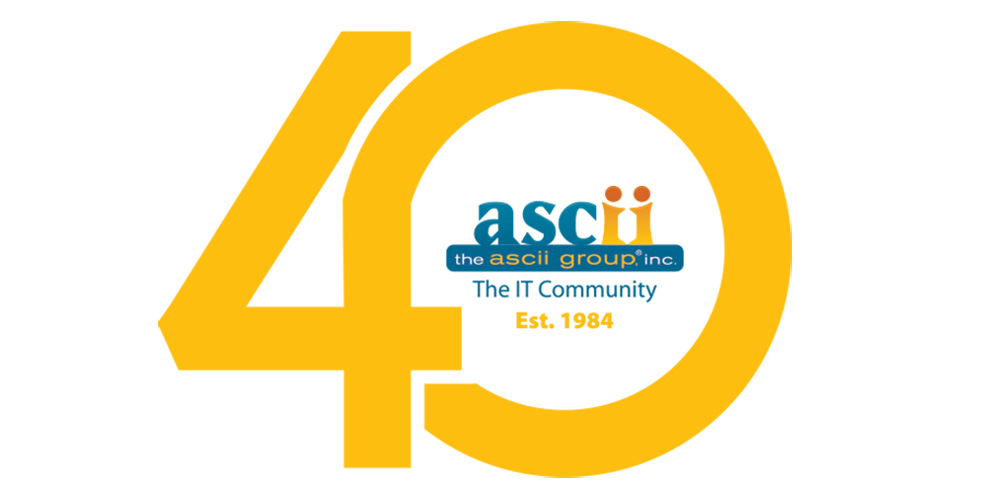The ASCII Group, the membership-based community of independent North American MSPs, MSSPs and solution providers, recently posed a series of questions to its members. The MSPs fielded questions about hiring best practices and how to retain talent for successful business operations.
Here, we present views from the following members of The ASCII Group: Roger Michelson, CEO, BNMC; Mat Kordell, COO, CyberStreams; Ali Karimi, CEO, GTI; and Angel R. Rojas, Jr., president and CEO, DataCorps Technology Solutions, Inc.
Commercial Integrator: Does your company have a clearly defined set of core values? How do you mindfully cascade them throughout your organization?
Roger Michelson: Yes, BNMC has [a set of] core values that we have communicated to all of the staff and even post on the wall at the office. We run on EOS and use the Vision/Traction Organizer (VTO) to reinforce core values every quarter with the team. The core values are:
- Do What it Takes, as Long as it Takes
- Do the Right Thing
- Teamwork and Collaboration
- Client Focused
Mat Kordell: Our organization is guided by five core values that reflect the best qualities of our team. They are not just words, but principles that inspire and shape our work. We reinforce our core values every month at our company meeting, and we celebrate our team members who demonstrate these values in their actions.
Ali Karimi: Yes, we do indeed prioritize this aspect. We’re sure we underscore its significance in our meetings and internal communications. Naturally, in my role as the leader of the company, I consistently set a personal example by embodying trust and unwavering commitment to our core values.
Angel R. Rojas, Jr.: Absolutely, our core values are not just words, but the very essence of who we are at DataCorps. Every operational aspect of our company, from top-down, resonates with these values. We’ve strategically woven them into every layer of our decision-making and processes. A testament to this is how our performance evaluations are constructed — they are rooted in and aligned with our core values. The same applies to our marketing narratives and our standards of work. When we say something is “The DataCorps Way,” it signifies an approach that is wholly in sync with our values.
Commercial Integrator: When a member of The ASCII Group like you hires someone, how do you ensure that they have a smooth, intentional onramp to become part of your company culture?
Roger Michelson: We first evaluate all new prospective candidates to make sure they are a good fit with both our core values list and that they Get It, Want It and have the Capacity to do the job (GWC process from EOS). As an IT Managed Services Provider, we also need to make sure they have the engineering skills and a consulting mentality to be successful in the job. For the onboarding process, we have the new hires work closely with their peers and the management team to allow for a quick onramp of the company culture.
Mat Kordell: We have gained valuable insights from our past experiences of onboarding new employees. We apply those best practices to our current process. We create a dedicated project for each new hire in our project management system and assign a project manager to oversee it. We also ensure regular communication between HR and the new employee to address any issues, needs or feedback. We strive to make the onboarding experience smooth and positive for everyone involved.
Ali Karimi: Our decision-making process revolves around the unique characteristics and traits of each candidate’s personality. As an integral part of our evaluation, we also encourage candidates to undergo a DISC test, which provides valuable insights into their behavioral tendencies, helping us make more informed choices during the selection process.
Angel R. Rojas, Jr.: Hiring at DataCorps is an intentional process. It’s crucial for us to ensure that a new team member not only possesses the requisite skills but also aligns with our culture and values. To facilitate this, our interview process is a blend of standard evaluations and value-based inquiries. Prospective team members are given reading assignments from methodologies that have deeply influenced us. Their insights into these assignments provide a window into how they fit within our learning-centric culture.
Once onboarded, our entrenched culture and business operating system, “The DataCorps Way,” naturally facilitates their integration. It’s reflected in every interaction and every piece of work we do, enabling new team members to quickly understand and adapt to our way of working and serving clients.
Commercial Integrator: What specific actions does a member of The ASCII Group like you take to honor and thank high-performing associates and incentivize them to continue to excel?
Roger Michelson: We use an online recognition system called CrewHu to track both customer satisfaction and employee engagement and performance. The system uses gamification techniques to keep our team engaged and excited about meeting their key performance indicators.
Mat Kordell: At CyberStreams, we value our clients and our employees. We follow the Radical Candor framework by Kim Scott, which categorizes employees into rock stars, super stars and underperformers. Rock stars are reliable and consistent, super stars are ambitious and innovative, and under performers are struggling and dissatisfied. We offer fair and motivating compensation for each type of employee, and we provide feedback and support for under performers to help them improve or move on.
Finally, we believe that everyone can contribute to our success, but we also have high standards and expectations that we communicate clearly and respectfully.
Ali Karimi: I would like to make it a point to personally address this matter with individuals, ensuring that it’s part of our one-on-one discussions. Furthermore, I consistently raise this topic in our internal meetings and communications, reinforcing its significance within our organizational culture.
Angel R. Rojas, Jr.: At DataCorps, we believe in the power of immediate, genuine appreciation. Recognizing achievements and celebrating them is a routine for us, be it daily or weekly. We’ve found that this constant feedback mechanism fosters a sense of achievement and fulfillment among our associates. It’s essential to understand that for high performers, the drive often isn’t just monetary compensation. It’s the thrill of accomplishment, the satisfaction of a job well done, and the knowledge that their contributions are recognized and valued. When they go home each day, we want them to carry that feeling of victory and purpose.
We’ve seen that many high performers exit organizations even when compensated well because they don’t feel that sense of achievement. We aim to ensure every team member, especially our high performers, always feel that they’re winning and making a difference.











